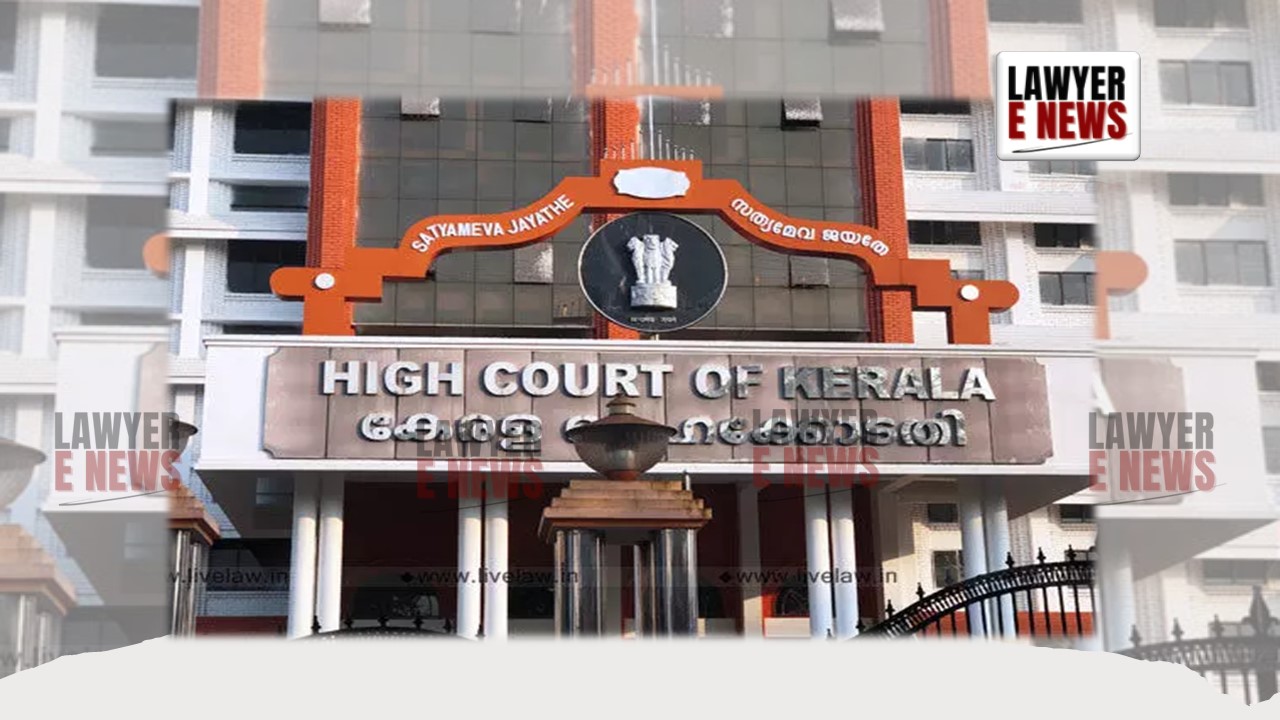-
by Admin
15 February 2026 5:01 PM



Kerala High Court discharged Accused Nos. 9 and 10 under Section 227 of the Code of Criminal Procedure (CrPC). The Court found no evidence to connect the petitioners to the alleged conspiracy or crime, which included charges under Sections 120B, 341, 307, and 302 read with Section 34 of the Indian Penal Code (IPC), and Sections 20 read with 27 of the Arms Act. The judgment set aside the order of the Sessions Judge, Palakkad, dated November 30, 2018, which had rejected the petitioners’ discharge application.
The High Court emphasized that there was no credible evidence linking Accused Nos. 9 and 10 to the offense and highlighted the importance of consistent judicial treatment. The decision reiterates the principles of discharge under Section 227 CrPC, where accused persons must be discharged if no prima facie case exists.
The petitioners, Accused Nos. 9 and 10, were implicated in a criminal case involving serious charges of conspiracy, wrongful restraint, attempted murder, and murder. The prosecution relied on the statements of CW41 and CW42, who claimed to have seen the petitioners standing on a bridge near the scene of the crime, and on alleged call data records. However, the petitioners contended that the prosecution failed to provide any evidence, including the alleged call data records, to establish their involvement in the crime. They sought discharge under Section 227 CrPC, arguing that they stood on the same footing as Accused Nos. 8, 12, and 13, who were discharged earlier by the High Court in a related criminal revision petition (Crl.R.P.Nos.157 & 169/2019).
1. Lack of Evidence Against Accused Nos. 9 & 10
The Court found that the prosecution's case against Accused Nos. 9 and 10 relied solely on the testimonies of CW41 and CW42, who stated that they had seen the accused on a bridge. The Court observed that there was no indication that these witnesses overheard any incriminating conversations or actions. Further, the prosecution failed to produce the call data records allegedly linking the accused to the crime. As such, the evidence was deemed insufficient to proceed to trial.
2. Parity in Judicial Treatment
The Court noted that Accused Nos. 8, 12, and 13, who were similarly placed, had already been discharged in a related case (Crl.R.P.Nos.157 & 169/2019) due to lack of evidence. The High Court applied the same reasoning to Accused Nos. 9 and 10, emphasizing the need for consistency in judicial decisions.
3. Section 227 CrPC
The High Court reiterated the principle that an accused must be discharged if no sufficient grounds exist to proceed. The Court highlighted that mere suspicion or the presence of the accused at a location, without evidence of active participation or conspiracy, cannot sustain charges under the law.
The Kerala High Court held that the reasoning applied in its earlier order dated August 1, 2019, discharging Accused Nos. 8, 12, and 13, also applied to Accused Nos. 9 and 10. The Court emphasized that consistency in judicial treatment is fundamental to ensuring fairness and equality before the law. Since the accusations and evidence against Accused Nos. 9 and 10 were identical to those against the previously discharged accused, the petitioners were also entitled to discharge.
The Court specifically found that:
• There were no call data records or any material evidence linking the accused to the alleged crime.
• CW41 and CW42’s testimonies did not demonstrate any incriminating actions or conversations involving the accused.
As a result, the Court concluded that the prosecution failed to establish a prima facie case against the petitioners and allowed the criminal revision petition, discharging them under Section 227 CrPC.
In this significant ruling, the Kerala High Court emphasized that the absence of evidence against an accused must result in discharge under Section 227 CrPC. The decision also reinforces the principle of parity in judicial treatment, ensuring that similarly placed accused persons are treated equally under the law.
Date of Decision: December 10, 2024
